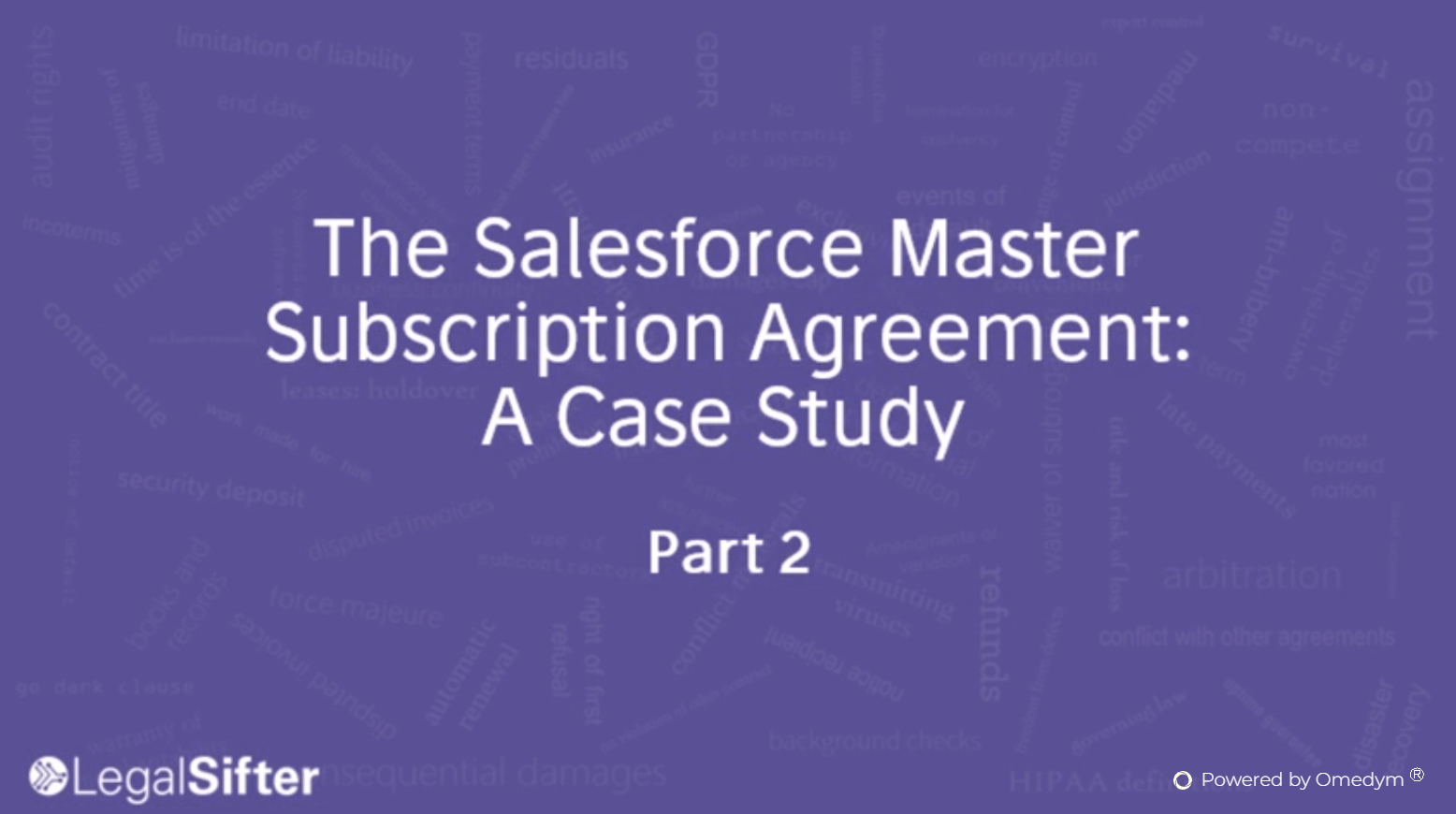Last week saw the release of the first video in my series The Salesforce Master Subscription Agreement: A Case Study, presented by LegalSifter (see this blog post). The first video set the scene by describing what the MSA covers.
The second video is now available. In it, I do a quick critique of an extract of the Salesforce MSA, then co-presenter Alex Hamilton and I discuss why companies find it so hard to create and maintain contract templates, and what might be done to change that. Because it’s Alex, all swashes are thoroughly buckled!
For the second video, the giveaway is three Word documents combined into one, each of the three containing (1) two extracts of the Salesforce MSA that I’ve annotated extensively to explain the drafting problems and (2) my redraft of those extracts. Pretty much everything needs help, in ways big and small.
As I take pains to explain in the video, the Salesforce MSA is entirely representative of mainstream contract drafting. That’s the problem.
And now, without further ado, go here for the second video (although for the moment, a glitch is preventing you watching in full-screen).
Next week we’ll release the third and final video, featuring Gabe Meister. We explore issues (whether related to the deal or how the contract is drafted) that might be significant enough to be worth raising with Salesforce.


With respect to the provision about Customer only being able to retrieve data if allowed to do so by law: I think this is getting at the notion that there may court orders requiring the provider to lock down the data and/or requiring them to not delete it because it is evidence. I think the edit you made to this provision doesn’t quite capture this concept. I’m not aware of any laws (including GDPR) that specify any timeframe for a customer’s ability to retrieve their data; GDPR says the data should be deleted by the SaaS provider when the services are over and there’s a bit of regulatory guidance around this that suggests that SaaS providers can hold onto the data for a short period after termination if operationally necessary.